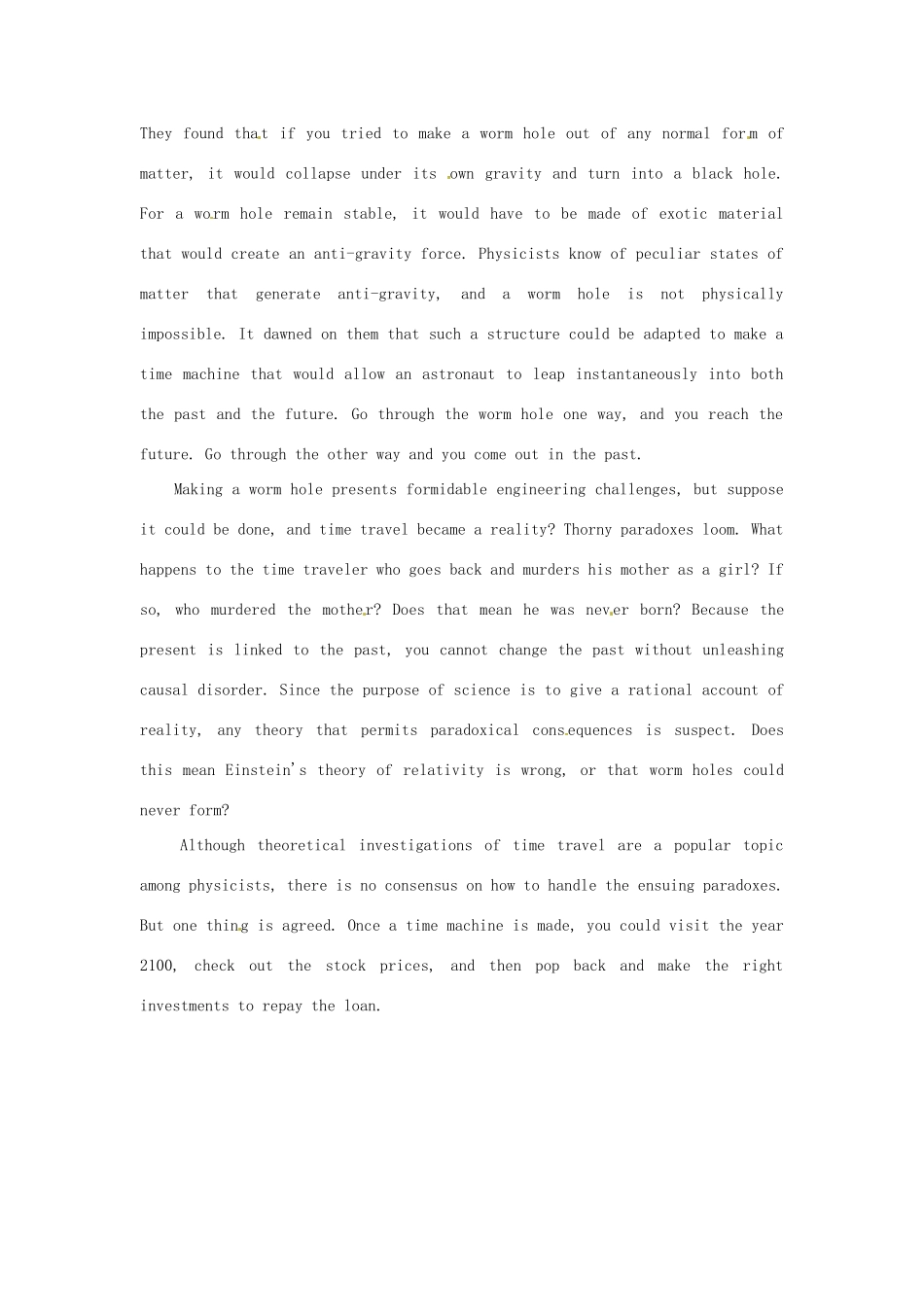高考英语《流行话题 语境识词 4500》Unit 95 Scientists Look Forward to the Past 素材Unit 95 Scientists Look Forward to the Past Can time travel really be done? Physicists think that travel i nto future is possible. Einstein's special theory of relativity, published in 1905, predicted that time should be elastic, stretching or shrinking as an observer moves. To get a really big time leap it is necessary to travel at near the speed of light -- 300,000 km per second. At 99% of this speed, a rocket trip to a distant star and back would take 15 months, but travelers would return home to find that nearly nine years had elapsed on Earth. In effect, you would have leapt several years into Ea rth's future. Gravity offers another way to slow time. On the earth's surface, clocks tick a little slower than on the moon, for example. Near a neutron star or black hole, gravity is so intense that time is slowed to a crawl relative to us. These facts are accepted by almost all scientists. Traveling forwards in time has been demonstrated convincingly in experiments. But the possibility f traveling backwards in time is far more controversial. The first hint that it might be possible came in 1932, when a physicist named Stockhum investigated what might happen to an observer who orbits a rapidly spinning cylinder. He showed it was possible to travel in a closed loop and return to your starting point before you left. Worm holes are like black holes, with a key difference. Whereas black holes offer a one-way journey to nowhere -- fall in and you never get out -- worm holes have an exit as well as an entrance. To find whether such an idea can be taken seriously, scientists at California Institute of...

